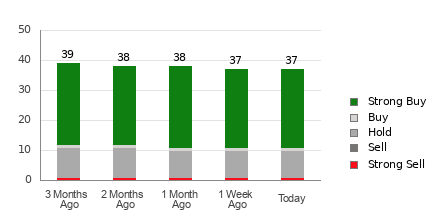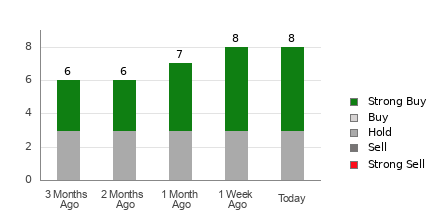
“Birds of a feather flock together,” the old adage says, meaning that, for better or worse, people tend to hang out with those they find common ground with.
You’ll be hard-pressed to find a ballet dancer hanging out with a motorcycle gang, for example, or a cool kid associating with a nerdy one, it just isn’t the ordinary.
I’m not saying it can’t happen, just that it isn’t the norm. Opposites can attract, that’s true, but in the case of humans, those opposites usually end up influencing each other. Unlike with magnets, they don’t stay at polar odds.
In which case, let’s also consider these sayings:
- “Tell me who you walk with, and I’ll tell you who you are.” – Esmeralda Santiago.
- “You are who you are by virtue of the company you keep.” – T. B. Joshua.
- “The key is to keep company only with people who uplift you: whose presence calls forth your best.” – Epictetus.
- “It’s better to be alone than in bad company.” – Unknown.
It’s true that we all make mistakes in who we associate with sometimes. Maybe we’re a little on the naive side and trust the wrong person. Maybe a friend changed without us knowing. Or maybe the other party is a natural con artist, but unfortunately, it doesn’t matter much in the end. The influence is still there, and so are the consequences. When you lay down with dogs, you’re still going to wake up with fleas. So do everything you can not to lay down with dogs.
Unfortunate Business Liaisons
I’m sorry to say I’ve learned this lesson the hard way. That’s normal to some degree. It’s part of growing up – and we’re never completely grown. Hopefully smarter every year. Hopefully wiser. But always growing, there are always new people and new data to interact with, all of which needs to be processed.
I’m not trying to make any excuses here for the enormous mistake I made over a decade ago. Just trying to explain it, including how running your own business can present a very unique set of opportunities to “grow up.”
I’ve been thinking about this a lot lately, which is probably why I’ve been writing a lot about it. So for anyone who’s read about this already in the last month or so, I apologize. Feel free to skip ahead.
For those of you who have no idea what I’m talking about, let me be blunt: I ended up in business bed with a “bad apple.” We were running a commercial development business together, when he began making “decisions” behind my back… which led to him being unable to pay back loans… which he also didn’t tell me about. I had to find all of this out on my own, making for a very rude awakening. And it took me quite a while to get my finances and reputation back after that.
That’s why I’m so focused on who manages the companies I invest in. I know firsthand what can happen when management runs awry. Great executives do exist. But so do good ones, poor ones, and even incompetent and unethical ones. Which brings that Epictetus quote to mind – with a twist. “The” investing “key is to keep company only with” businesses that “uplift you, whose presence calls forth your” portfolio’s “best.”
Unfavorable REITs to Associate With
Having fleas is most definitely not your best. Keep that in mind. Also keep in mind that as management goes, so does the company. That’s why I write in REITs for Dummies:
“… any publicly traded company is exceptionally reliant on capital markets. That’s where success or failure is largely determined and shareholder returns are largely realized. Companies thrive when they create real economic value for their investors, which happens when their rates of return exceed their cost of capital. And that happens under ethical, experienced, in-the-know management.”
I go on to detail one specific example of a REIT years ago that fell far, far from that ideal. But I do want to stress another section before we get into more modern-day dirty details:
“There will always be a few bad apples here and there in REIT-dom [the kingdom of real estate investment trusts]. So as I keep saying over and over again, you never want to put your full faith in any one entity. With that said, most REIT executives are well-respected leaders with decades of experience in their respective sectors. A big reason I own REITs is because of skilled management and their ability to manage risk. Those elements are what separate the best from the rest; and there are a strong number of REITs that work hard to keep those elements first and foremost in their business dealings.”
That’s another thing to keep in mind: that the larger sector is well worth investing in under the right price conditions. Unfortunately, the REITs below are exceptions to this rule. They don’t qualify as “best.” Not even close. And you’re not going to do your best if you invest in them. Don’t flock with these birds. Your feathers will get ruffled in all the wrong ways.
Medical Properties Trust, Inc. (MPW)
MPW is an internally managed real estate investment trust (“REIT”) that was established in 2003 to develop and acquire net-leased healthcare properties, primarily hospital facilities. As I mentioned recently, MPW was my worst-performing holding in 2023.
Medical Properties Trust: A Rocky Road Ahead for Investors
Medical Properties Trust (MPW), a real estate investment trust with a portfolio of healthcare properties, has been on a bumpy ride, leaving investors rattled and anxious about the future. With a global footprint spanning 9 countries and 43,000 licensed beds, the company has faced significant challenges over the past couple of years. Let’s dive into the turbulence facing MPW and what lies ahead for the beleaguered REIT.
Struggles in the Healthcare Property Market
The healthcare property market has been less than kind to MPW, with the company selling off some of its healthcare facilities, resulting in a reduction in its property and bed count. The focus on General Acute Care Hospitals, representing 63.7% of its total assets, and its struggles with tenant concentration have compounded its woes. Furthermore, allegations of misconduct and imprudent financial decisions have added fuel to the fire, leaving shareholders disillusioned.
Turbulent Financial Performance
MPW’s stock price has plunged drastically, declining by a staggering 85.25% over a two-year period. In a move to mitigate its financial woes, the company cut its dividend by almost 50% in 2023 and witnessed a decline in its adjusted funds from operations (AFFO). The downward spiral continued as analysts projected a further decline in AFFO by 17% in 2024, painting a grim picture for the company’s financial performance.
Troubling Tenant Relations and Financial Decisions
The magnitude of MPW’s tenant concentration, especially with Steward Health Care, responsible for 20% of its total assets and revenue, has raised red flags. The company’s handling of the situation with Steward, including issuing additional loans to alleviate its financial woes, has left investors scratching their heads. The recent disclosure of Steward’s liquidity woes and unpaid rent has further muddied the waters, casting doubt on MPW’s decisions and judgment.
Uncertain Road Ahead
With financial indicators pointing southward and earnings quality diminishing, MPW finds itself at a crossroads. The risk/reward profile for the company seems precarious, with a significant discrepancy in analyst opinions about its future prospects. The company’s historical performance in comparison to its current state hints at a turbulent journey lying ahead, one fraught with uncertainty and doubt.
A Cautionary Call for Investors
In light of the challenges facing MPW and the inherent risk it poses, a cautionary tone is warranted for investors eyeing this REIT. The unpredictability of the healthcare property market, coupled with the company’s tumultuous financial performance, underscores the need for a judicious approach. While potential opportunities for recovery exist, they are laden with considerable risk, warranting a speculative-buy rating with a high-risk warning for potential investors.
Navigating the stormy waters ahead will require steely resolve and meticulous assessment of MPW’s future trajectory, emphasizing the adage of “look before you leap” in the volatile landscape of healthcare real estate investments.
The Perils of Mortgage REIT Investments
Annaly Capital Management
Annaly Capital Management (NLY) is a mortgage real estate investment trust (REIT) with a portfolio that includes mortgage pass-through certificates, agency mortgage-backed securities, collateralized mortgage obligations, and other securities backed by pools of residential mortgage loans. NLY conducts its business through three main segments, including Annaly Agency Group, Annaly Residential Credit, and Annaly Mortgage Servicing Rights. Its Agency Group invests in Agency MBSs collateralized by residential mortgages and backed by government-sponsored enterprises, including notable agencies such as Freddie Mac and Fannie Mae.
As of the end of the third quarter, NLY’s investment portfolio totaled $76.2 billion, with its Agency Group representing 64% of its capital allocation, followed by its Mortgage Servicing Rights and Residential Credit Groups, which represented approximately 19% and 17% respectively.
Since 2014, NLY has had an adjusted operating earnings per share growth rate of negative -4.87%. The company’s EPS fell consistently over the years, and analysts expect a further decline in EPS for the upcoming years. NLY’s dividend track record is also concerning, with a series of dividend cuts leading to a current high dividend yield of 13.32%. Although the stock is trading at a discount, NLY is rated a sell due to the poor execution management has displayed over the last decade.
AFC Gamma, Inc. (AFCG)
AFC Gamma is another mortgage REIT that initially specialized in loan origination for cannabis-related properties but has since expanded its investment guidelines to include originating loans for multiple types of commercial real estate. However, the company’s significant changes to its business model, just years after going public, raise questions about management’s planning and execution.
From the second quarter of 2022 to the third quarter of 2023, the company’s distributable earnings fell, and the dividend per share was reduced by approximately 14%. Analysts project a mixed outlook for AFCG’s earnings per share, paving the way for potential trouble regarding the sustainability of its dividend at the current level. Despite a high dividend yield and trading at a discount, caution is advised due to the company’s recent business model shift and uncertain dividend sustainability.
Lesson Learned, Folks
As I said earlier, I had to learn my lesson the hard way – so always be careful of your business partnerships. Whenever I buy a stock, I always look at the management team much like a business partnership, and if the interest of the parties is not aligned, I will not own the stock. That means that high leverage and dividend cuts are not acceptable.
I’ve learned that lesson not only in my private life but also in the stock market. As I see it, the primary job of any REIT CEO is to generate growing profits and dividends, and if that doesn’t happen, I have very little interest in being a stakeholder.
“When you lay down with dogs, you wake up with fleas.”
Now, are you still itching right now?










